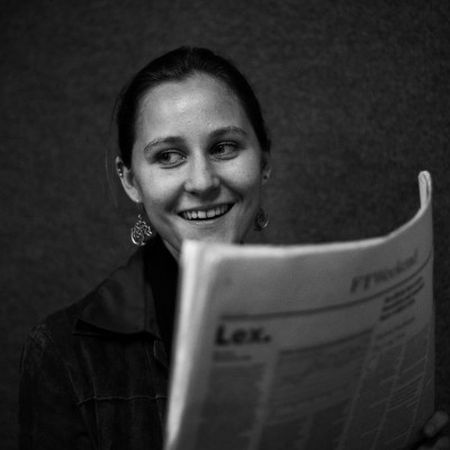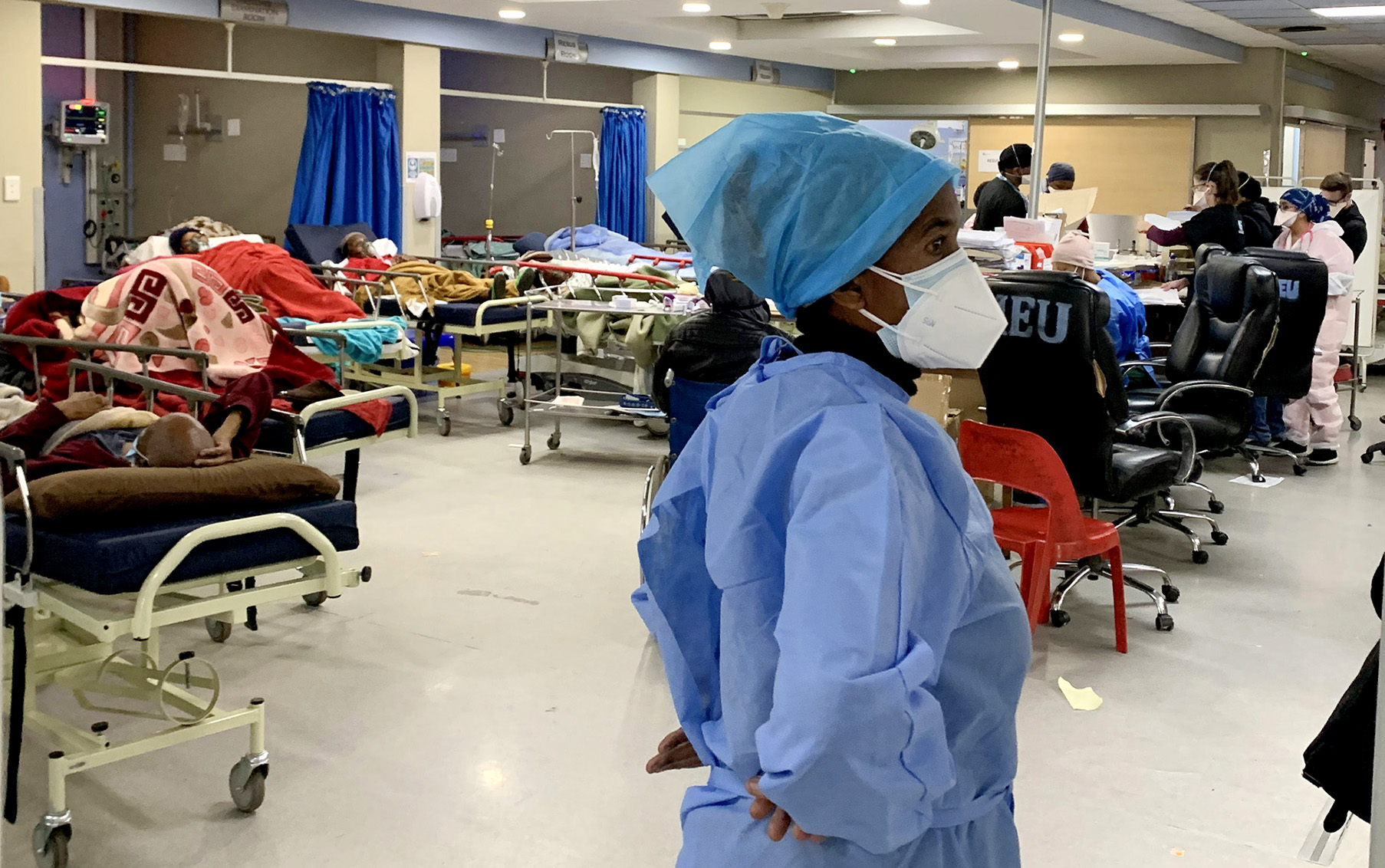A collective of doctors from across South Africa has lambasted the South African Medical Association Trade Union (Samatu) for failing to represent the interests of health professionals with many facing deteriorating working conditions.
The doctors, say their urgent call to Samatu to “confront the deepening crisis” in the health system has fallen on deaf ears as junior doctors continue to face mass unemployment, and public-sector clinicians struggle with resource constraints and excessive unpaid overtime hours.
On 26 May, 126 front-line doctors from more than 40 public and private healthcare institutions issued an open letter to Dr Cedric Sihlangu, general secretary of Samatu, calling for “real” action towards addressing an exploitative health system.
“You call for dialogue – but dialogue with whom? With the very state that, year after year, has frozen posts, looted budgets, outsourced dignity, and now discards its doctors like broken tools?” the letter stated.
“Let us speak plainly. What is happening in Gauteng, Limpopo, Mpumalanga and everywhere else is not a technical oversight. It is the deliberate application of austerity in service of a political class that has no intention of delivering just, functional or universal healthcare. The goal is not to fix the system – it is to break it, hollow it out and contract it to the politically connected.”
The letter also criticised the approach to the National Health Insurance (NHI) Act, stating that the NHI in its current form was not a path to equity, but a “pipeline for centralised corruption, dressed up in the language of justice”.
The collective questioned the union’s efforts to “build power from below”, calling it a “union of the few speaking on behalf of the many”. Among the changes it called for at the union were:
- The election of accountable leadership “from below, rooted in struggle not ceremony”;
- The unification of employed and unemployed workers in one movement for workplace democracy;
- Preparation for “real, coordinated action”, rather than symbolic resistance; and
- Acknowledgement that the health system was not “broken”, but functioning to protect capital, contain labour and make politics profitable.
‘Nothing to lose’
Dr Simon Spoor, a spokesperson for the collective, said they had received no response from Samatu. He added that the network of clinicians had since grown to more than 1,000, represented on a WhatsApp group where they could share their concerns about problems in the health sector.
“The movement basically started with people beginning to get fed-up with the lack of response from our official doctors union, Samatu, who for years has been largely unaccountable and almost a non-entity when it comes to doctors and doctors’ issues,” Spoor said.
Samatu told Daily Maverick that it is aware of the open letter from the doctors’ collective. It said that just 15 of the 126 doctors who signed the document were registered members of the union.
“Whilst Samatu would, on matters of collective concern, represent all doctors regardless of their union membership status, it is only fair that complaints similar to the ones encompassed in the letter be raised by members of our union only,” Sihlangu said.
“Samatu deems it frivolous for any doctor to claim that the leadership of the union is quiet on matters that affect doctors. More than other unions, and any other organisations that claim to represent the rights of doctors, Samatu has been at the forefront of addressing issues that affect healthcare workers, especially doctors, including bread-and-butter issues such as the unemployment of doctors.”
On the matter of the NHI Act, Sihlangu said the union had been “vocal” regarding its implementation, but added that there was a need for “system change” in public healthcare.
“We need to allow the overdue systemic revolution in public healthcare, and currently that can only be done by allowing the NHI to take effect,” he said.
Short-staffed and overworked
Spoor noted that problems with the delivery of healthcare in the public sector are often blamed on individual workers or particular facilities.
“The system refuses to acknowledge the systemic nature of the problems we’re facing, that the public is also kept in the dark about. It’s reached the point where we can’t, in clean conscience, allow it to go on any longer,” Spoor said.
“We’re not doing this, in our own collective, just for ourselves. It’s really for the patients that we serve. No doctor likes to… see your grandmother sitting there for six hours waiting to get treated for a heart attack… and if you do that on a day-to-day basis, it starts to grind you down. At this stage, we felt like we’ve got nothing to lose, and we have a moral duty, because if we don’t speak out… then nobody will.”
The open letter to Samatu was released shortly after unilateral policy amendments by the Gauteng Department of Health (GDOH) to reduce commuted overtime contracts for doctors. Samatu released a statement on 4 April stating that it had met with the department and ensured a three-month suspension of the implementation of the proposed changes, pending a consultation process.
However, the collective behind the letter argued that the GDOH’s actions are only a symptom of much deeper problems.
“Doctors have always worked more overtime hours than what they’re paid for, but now they’re pushing it so that they are expecting all doctors to work a minimum of 80 hours overtime a month... And in some places... they’re expected to work up to 170 hours a month,” Spoor said.
The accounts of doctors in the collective’s network were shared with Daily Maverick under condition of anonymity to protect them from professional backlash.
One doctor from the Eastern Cape said that overtime hours for certain specialities, such as ophthalmology and urology, were dropped at their health facility between April and May. This resulted in general practitioners having to handle specialist cases that came in after hours, as the required clinicians were not present.
“Their wake-up call was when patients started dying like flies… There were also bottlenecks in casualty because most departments would not accept patients over weekends due to lack of cover,” the Eastern Cape doctor said.
Another doctor claimed that while they were contracted to work 80 hours overtime per month, they consistently worked between 100 and 114 hours.
“I am not compensated for the extra hours worked. I confronted HR at our workplace and was made to feel guilt for questioning why I am doing unpaid extra hours. He even said he is disappointed in me,” the doctor said.
“It’s taking a toll on my mental health… because I have to study, do multiple courses that I will use to apply for a permanent post… but I am constantly exhausted and my time is being stolen by the hospital.
“I am human too, I am not a machine. I am not solely my job.”
Spoor said that in 10 years in the public sector, he had never seen morale among doctors at “such a low point”.
Daily Maverick reached out to the National Department of Health about the reports of poor working conditions for doctors in the health sector but had not received a response at the time of publication.
According to Samatu, “the issue of commuted overtime downgrades started in Limpopo, and there is an ongoing litigation process between Samatu and the Limpopo Department of Health, whereby the High Court ruled in favour of Samatu and interdicted the implementation of a flexi-shift system. It cannot be that Samatu would be willing to advocate for doctors in Limpopo on this issue and not be willing to do it for those in Gauteng. Just like any organisation, we must strategise on how we tackle issues like this one, for the benefit of our members.”
Making a change
Samatu’s election policy states that an individual can only be elected as a national office bearer when they have been a member of the union in good standing for eight years or more. Its constitution states that shop stewards can be elected at workplaces where the organisation has a minimum of 50 members.
Spoor said these requirements exclude many doctors from accessing representation or leadership positions at the union.
“Our view is we need to build something new from the ground up,” he said, adding that the collective had plans to establish a voluntary association to represent doctors, with the aim of expanding into a “fully fledged union”.
“We’re trying to do this very democratically… but with a few basic assumptions that we all seem to agree on, which is that every institution should be able to have a representative… We want to set up a structure where leadership is recallable at any time and mandates can be made from the rank and file,” he said.
Sihlangu told Daily Maverick that all members of the union qualify to contest for positions, provided their membership status is in order.
“Just like any other union, Samatu has a constitution that the organisation must adhere to, as well as the Labour Relations Act… Section 14(2)(a) to (f) of the Labour Relations Act clearly stipulates the requirements that must be met by every union to elect trade union representatives in workplaces,” Sihlangu said. DM





 Doctors are challenging Samatu over what they say is a lack of action in addressing worsening working conditions in the healthcare sector. (Photo: Felix Dlangamandla)
Doctors are challenging Samatu over what they say is a lack of action in addressing worsening working conditions in the healthcare sector. (Photo: Felix Dlangamandla)